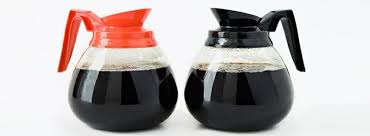One of the most popular coffee variations out there is by serving it in a decaffeinated way. Some fanatics have even regarded decaffeination as an “art” that would yield to the best tasting and most aromatic cup of coffee once perfected.
But what really is the difference between the normal coffee and the decaffeinated one? And what of it that people find mystifying and incredible that others fancy it very much? Is decaf coffee really a better choice when it comes to the health aspect? Many questions revolve around this certain type of beverage, but Coffee Caller answers all of these and helps you understand decaf coffee better!
Why Choose Decaf? (Benefits of Decaf Coffee)
Health is wealth. This adage is pretty much adhered by many people nowadays, both coffee-lovers and non-coffee drinkers. But it is precisely this saying that they might be able to explain why people tend to choose decaffeinated coffee over the traditional way of savoring coffee.
It has been said that coffee contains some elements that may cause or lead to health problems such as sleep troubles, anxiety and irritability, high blood pressure, and even insomnia. Even though coffee has still not been proven to be one of these problems’ root causes, the pieces of evidence are noticeable for the coffee drinkers. A number from the health community have pinpointed that drinking coffee raises the drinker’s blood pressure tremendously for a temporary time.
Some people and health authorities alike have gone through notions to blame the caffeine found in the coffee. That is the main reason why people choose decaffeinated coffee over the normal cup because it has got less caffeine to prevent the health hazards that are assumingly caused by it. Decaffeinated coffee, as it has a tremendously reduced amount of caffeine than regular coffee, promises to help eliminate these negative effects that are yielded from coffee consumption.
What is Decaf Coffee? (Decaffeination Defined)
Decaffeination is the process by which people extract the caffeine found on coffee beans, cocoa, tea leaves and others that contain caffeine. The procedure takes away most of the caffeine content in the said ingredients. The total removal of caffeine, however, is often not achieved. At most times, after the decaffeination process, there would still be 2-3% left of the caffeine content.
For the process of coffee decaffeination, unroasted green coffee beans are used. The beans are steamed in the first phase and are rinsed afterward. The rinsing is made by using a solvent that will be able to take away the caffeine, in particular, leaving the other oils and nutrients in the coffee that are responsible for its taste, aroma, and health benefits. The process is repeated until the desired percentage of the caffeine is taken away. The international standard for decaffeinated coffee is that it has 97% of its caffeine removed from the beans, while for the European standards, the coffee should be 99.9% caffeine free.
The first successful decaffeination process to have ever been commercially introduced is the Roselius Process in 1903. The caffeine is extracted by steaming the coffee beans with a saltwater solution and afterward using the solvent called benzene. This process is the forerunner of the decaffeination practice, but it has been long gone as benzene turned out to produce health problems.
Some solvents used in decaffeinating coffee beans were once proven to be hazardous and have been banned from use. Good thing there are new ways in the present that are proven to be safe, and of course, the ever-evolving technology helps in safeguarding the security of our love affair with coffee!
Negative Effects of Decaf Coffee
As been stated, some of the solvents used in the process of decaffeination may bring about health hazards that can cause problems to the drinker’s body. So it is imperative that you check what kind of solvent was used to remove the caffeine from your coffee beans. This is to assure that it is safe for consumption and will not harm you or the other people in your family that will drink the decaf coffee. See the label at the back of your coffee beans pack in order to make sure that the process they have gone through is safe.
Also, decaf coffee consumption should be avoided by pregnant women. Even though they do not show obvious threats to the unborn child, there may still be a chance that chemicals mixed may lead to extreme danger for the pregnancy. So if you are pregnant, do not drink decaf coffee because you should not be taking chances with a life –better safe than sorry, as they say.
However, coffee drinkers have given complaints on how decaffeination lessens the innate taste and aroma of the coffee that they have grown to love. Other decaf lovers, though, have stated that if the process of decaffeinating was done properly, the diminishing of taste would be prohibited. Well, this may be remedied by using high-quality green coffee beans so that even if the taste has been lessened, the quality is still top-notch. The downside to this, though, is that you will be required to pay more for these high-quality green coffee beans.
Switching to Decaf Coffee
If you have decided that you need to switch to decaf coffee instead of staying with your much-loved normal brew, then you should do the switch without haste. Doing this will help you, your taste buds, and your body to slowly ingest the change in your daily habit (especially if you have been drinking normal brew for your WHOLE life).
You may choose to mix both brews in an equal proportion first and then slowly increasing the decaf brew as time goes by. With this, the switching process will seem more natural and you will not find the difference too shocking.
